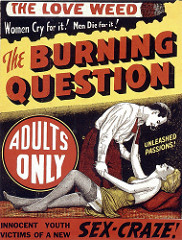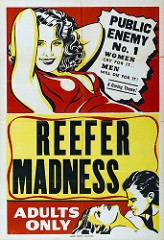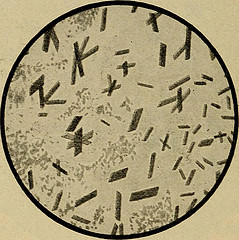PCOS and Sex: Considering Sexuality and Sexual Functioning With a Diagnosis of Polycystic Ovary Syndrome
One of the MOST common endocrine and hormonal issues facing women of reproductive age (it is estimated to affect 4-12% of women) is polycystic ovary syndrome (PCOS). PCOS is a challenging, symptom-based diagnosis that can greatly impact a woman’s sexuality and sexual functioning. PCOS is also the most common cause of infertility in the United States. What we don’t often talk about after a diagnosis of PCOS is how it affects a woman and their partner’s sexuality and sexual functioning. This blog will go over a brief review of PCOS and how it affects the sexual aspects of a woman and their partner.

Prevalence and Symptoms
Despite how prevalent the disorder is (1 in 10 women) many women suffer in silence on how PCOS affects them and how it affects the way they feel about themselves sexually and how it can affect their partner sexually.
I have been living with PCOS for approximately 5 years now, but in retrospect perhaps have had some of the symptoms long before my diagnosis. PCOS is generally a symptoms-based diagnosis, meaning I was diagnosed based on several symptoms I was exhibiting as well as some imbalances in blood and hormonal levels.
The most common symptoms in women with PCOS include:
- Irregular menstruation: few or no periods, intermittent bleeding, heavy periods, etc.
- Hair loss from scalp or hair growth (hirsutism) on the face, chest, back, stomach, thumbs or toes
- Acne and oily skin
- Fertility Issues
- Insulin resistance and too much insulin, causing upper body obesity and skin tags.
- Depression and mood swings
- Breathing problems while sleeping (linked to obesity and insulin resistance)
The general reason behind PCOS has to do with the body producing more androgens, causing a hormonal imbalance, and the body has trouble using insulin, called “insulin resistance”. Overall, the cause of PCOS is not readily understood.
You can watch more about my journey with PCOS and why I decided to freeze my eggs last year as well as my experience as a sex therapist diagnosed with Polycystic Ovary Syndrome below.
PCOS and Sex
Not only is PCOS not well known as a major issue for women of reproductive age and the #1 cause of infertility, even more closeted is how PCOS affects sex and sexuality of the woman and their partner(s). PCOS can have tremendous affects on a woman and their partner and this blog aims at creating more awareness about how PCOS affects the sexuality and sexual functioning of all people involved.
Body Image
The biggest effect I see in clients (and in myself) living with PCOS is how the symptoms of PCOS can change how we feel about our bodies. Not only did I gain weight mostly in my breasts, abdomen, and upper arms the more the PCOS progressed, but I also grew a white, fine hair on my face that became more and more embarrassing the longer into the diagnosis I went. No matter what I did, I still gained weight and the hair still grew. I have always had issues with acne since adolescence, and I noticed that I was getting increasingly more cystic acne on my cheeks, chin, and even my neck. Painful red bumps on my neck which had never happened before. There is nothing less sexy than feeling like I don’t even know what my body is doing and feeling super self-conscious on how it looks due to weight gain, hair, and acne.
Body image can greatly affect all aspects of sex and sexuality. If you don’t feel good about yourself in your own body, why would you want to share it with anyone else? Having a negative body image about ones body can also really inhibit desire- the better you feel in your own skin, the more desire you’ll have to be intimate and sexual with yourself and partners.
Partners don’t often understand this and I have seen that a partner sometimes doesn’t like the body that their partner has developed because of PCOS. Self-acceptance is the first to place to start, and then communicating with your partner WHY you might be having these feelings about your body. Partners often misinterpret a lack of desire for sex or inhibited arousal as something wrong with THEM. It’s important to talk to your partner(s) about PCOS and how it affects you and to ask for your partner to work to help you and them accept your body for what it IS, not what it isn’t.
How I Manage It:
It sucks. And its not fair. But I tried to focus on my body as something that needed my help and love and support, and not something to loathe and despise. I tried several different very restrictive diets, only to find that the Ketogenic Diet was the most successful. I lost a little a weight and felt better about my body, but I also mourned the loss of what my life and my body used to be before PCOS. I’ll talk more about how Keto has helped other aspects of PCOS later in the blog.
I also started waxing my face, which helped, but since then, I have began laser hair removal monthly for all dark, hairy areas of my body (including a brazilian!) and getting my face dermaplaned ever other month (takes care of the hair and also leaves my skin looking fantastic!) Even though my hair growth was the white, soft hair on my face and lasering doesn’t work for that kind of hair, feeling good in my body and managing other unwanted hair helped. I feel like a hairless sexy vixen, which helped my body image.
Another factor was to embrace my curves. I try to wear clothing that accentuates my body, and doesn’t make me feel self-conscious. With a bigger abdomen, certain outfits (shorts for example) just didn’t make me feel good about myself. But dresses looked bomb! I really tried to find clothing AND lingerie/undergarmets that made me embrace my Marilyn Monroe figure, something that isn’t easy to do when I have been encouraged (societally) to be as skinny as possible. I also decided that when I needed to wear a swim suit, I would wear the sexiest one piece I can find. I’m 34 and it might be time to rock the pinup look instead of the bikini look. The feedback has been incredible! I have found partners CAN eroticize a more full-figured look. I look like a W-O-M-A-N, and most of them have found that VERY sexy. And so I have I- because I mean, if I don’t think I’m sexy, how can anyone else?
I was prescribed Spironolactone to manage the acne and some of the other symptoms. Spironolactone helped right away clear my skin and clear up the hormonal acne that was increasingly getting more severe on my neck and face. What it also did, however, is cause me to spot bleed more (my doctors denied that this was a thing, but the nurses did not). So I made sure I kept the dosage as low as I could, since bleeding was a major issue for me. Overall my skin looks great.
It took a long time and losing 5 lbs. to fall back in love with my body (I gained about 15 lbs after my diagnosis). I still feel self-conscious at times but body image is something that most people struggle with indefinitely, regardless of health issues.
Depression and Mood Swings
Depression and mood swings, in and of themselves can greatly impact your sexuality and your desire, arousal, and ability to orgasm and experience sex as well as your relationship with your partner. The hormonal and insulin related nature of depression and mood swings of PCOS can make for a very unstable emotional climate within oneself and interacting with your world (i.e.: partner). If someone isn’t stable emotionally, due to the side effects of PCOS, or depressed, their sex life will be impacted, with low libido, low desire, low arousal, and difficulty experiencing pleasure and/or orgasm.
And since a lot of the depression caused by PCOS is treated with psychopharmaceuticals like SSRI’s and antidepressants which are CRAZY notorious for impacting desire and sexual functioning, its like a double whammy. Ultimately, I tell my clients to weigh the benefits vs. the costs of treating their depression: If you are depressed or have bad mood swings and those are untreated, you aren’t going to want to have sex or enjoy sex. If you are on antidepressants or mood stablizers, you could feel a lot better but your desire and ability to be aroused or experience orgasm could be inhibited. Which is better or worse? Which offers you the best quality of life? These are decisions to talk about with your doctor and your therapist.
And it is important to keep your partner(s) in the loop. It can be really confusing to a partner and can impact them as well if depression and mood swings are a part of your life. Partners can feel blamed, criticized, defensive, and can subsequently develop their own anxiety and depression over their relationship because things aren’t going well or they perceive they aren’t. Open and honest communication and psychoeducation about PCOS are really important. No one wanted this- not you, not your partner, not anyone. Supporting each other and working together is the main goal of dealing with depression and mood swings, no matter what is the cause.
How I Manage It:
 Since so much of my mood and emotions were influenced by sugar and my blood sugar and insulin being so imbalanced, when I got the sugar and insulin and glucose reaction under control, this improved a lot, but I’m still prone to some low level depression (its interesting after I got the diagnosis a lot of things made sense including a long standing low level depression, the acne, and probably irregular periods except I had been on hormonal birth control for so long) I manage it with diet, exercise, nutritional supplements (I work with a naturopath), and a lot of rest. I can’t overwork like a lot of people without shutting down so self-care is really important. I’ve also had some success with medicinal foods and supplements such as St. Johns Wort, 5HT-P, SAM-E, and other products, but I don’t advise taking these unless you consult a doctor since they can interact with a variety of other medications (even reducing the efficacy of birth control) so even though you don’t need a prescription for some of them, they should be only taken under the supervision of a medical professional. If you want to know more about Medicinal Foods, read my blog on Medicinal Foods For Sexual Functioning .
Since so much of my mood and emotions were influenced by sugar and my blood sugar and insulin being so imbalanced, when I got the sugar and insulin and glucose reaction under control, this improved a lot, but I’m still prone to some low level depression (its interesting after I got the diagnosis a lot of things made sense including a long standing low level depression, the acne, and probably irregular periods except I had been on hormonal birth control for so long) I manage it with diet, exercise, nutritional supplements (I work with a naturopath), and a lot of rest. I can’t overwork like a lot of people without shutting down so self-care is really important. I’ve also had some success with medicinal foods and supplements such as St. Johns Wort, 5HT-P, SAM-E, and other products, but I don’t advise taking these unless you consult a doctor since they can interact with a variety of other medications (even reducing the efficacy of birth control) so even though you don’t need a prescription for some of them, they should be only taken under the supervision of a medical professional. If you want to know more about Medicinal Foods, read my blog on Medicinal Foods For Sexual Functioning .
Another thing that a lot of people discuss is Metformin. I have been prescribed metformin many times but I still resist taking it. I am not sure why- I think I am stubborn and am trying to manage these things naturally. But metformin often greatly improves these symptoms for many (as well as various other side effects/symptoms of PCOS).
Sexual Self-Esteem
Body image issues and mood aside, living with PCOS can greatly affect ones sexual self-esteem. The unpredictability of menstrual cycles and bleeding and fertility issues can cut us at the core of what is often an already fragile sexual self image. PCOS can make us mistrust our body or feel like we know nothing about it, which can lead to a lack of awareness of ourselves, our sexuality, and what brings us pleasure. I would not be surprised if a high-level of women living with PCOS also struggle with orgasm and desire issues, as well as other sexual dysfunctions, such as painful sex. And many of the pharmaceutical treatments for the symptoms of PCOS have the unpleasant side effects of affecting our sexual functioning.
Another factor, PCOS aside, is how high WAS/IS your sexual self esteem? Sex and the way we feel about ourselves is something we should be exploring indefinitely. It isn’t a destination, our sexuality and how we feel about ourselves sexually is a JOURNEY. As a sex therapist, I am constantly learning and growing and reading and journalling and going to conferences about sex. That is my profession- but what is everyone else doing to feel good about themselves sexually? To grow sexually?
On my Facebook page, I have tons of links to great books on sex and sexuality. But two I recommend for all women include Come as You Are (Dr. Emily Nagoski) and a new one Becoming Cliterate (Dr. Laurie Mintz). But there are so many more. Our sexuality has been totally neglected for most of us. Isn’t it time we build our own sexual self-esteem through KNOWLEDGE?
Oh and a brief word about partners- how is their sexual self-esteem? What are they doing to improve themselves? Is there stuff rubbing off onto you or vice versa?
How I Manage It:
The biggest factor on this was my irregular periods/bleeding. There was a time prior to my diagnosis and finding the correct hormonal birth control to be on that I was bleeding every day. EVERY.SINGLE.DAY. This really restricted my ability to be sexual with a partner (and since I have been mostly sexually single throughout my journey with PCOS, it made it REALLY hard to be sexual with a new partner). My sexual self-confidence, even as a sex therapist, plummeted and I felt like I constantly lived in fear of spot bleeding. It made it really hard to have desire, arousal, and orgasm and made me at times want to avoid sex all together. I wound up finding a hormonal birth control that helped ease the bleeding and then had to be prescribed a stronger hormonal birth control since I was bleeding through the original after a while. I also cut back down on the spironolactone and stopped taking a few supplements that I think contributed to the bleeding. Overall, it took months to figure it out but I’m happy-ish where I am at right now.
As a note- not all birth controls are equal for those of us with PCOS and medications and supplements that we are prescribed MAY VERY WELL have side effects that are distressing as well (like antidepressants on sexual functioning). Make sure you research yourself what the potential side effects are of a medication and trust your body. You know yourself better than anyone else. You can also ask your doctor, but they don’t always have or give you the full information on side effects. With PCOS, doctors don’t always know a lot about this disorder and they don’t always know all the side effects that will affect us, so make sure you do your homework and be your own advocate.
Glucose/Insulin/Pre-Diabetes/Blood Sugar
This definitely has an impact on your sexual functioning and can range to very little impact to the same affects on your sexual functioning that diabetes has. Diabetes can greatly affect your sexual functioning, including neuropathy, low sexual sensation, desire issues, issues orgasming and a variety of other issues. I don’t have the space or time to go into the complete complexities of diabetes and sexual functioning, but it’s worth a perusal of what the internet says…
How I Manage It:
I’ve tried very diets and programs to manage this, and the only thing I really have found that helps me has been the Ketogenic Diet. Sure, keto is challenging sometimes, but overall, I feel great on it, I feel way more in control of my hunger and appetite, I’m not self-medicating with sugar and carbs (which was pretty much what was happening- my blood sugar was so unregulated I was using sugar and carbs to manage mood swings, emotions, and just generally feeling crummy), and I’ve lost a little bit of weight. I know Keto is the long game for me, and I just take it a week at a time of making good food choices and learning more about the keto diet.
I’m also considering testing my blood sugar (I already test for ketones) but since I have responded so well to the keto diet, I wonder if I can do even better if I test myself regularly for blood sugar fluctuations. That might be the next chapter in my management of PCOS.
If you are struggling with a diagnosis of PCOS or think you might have PCOS and are looking for help and guidance with dealing with the symptoms of PCOS, please contact me. I am a PCOS-knowledegable and PCOS-aware therapist who can help you cope with PCOS and live the best life possible!
More Resources on PCOS
In person conference held annually to discuss PCOS developments and research.
Online series of interviews with experts in PCOS available for free for two weeks then for a fee afterwards.
Online support forums and weekly recipes designed to naturally manage symptoms of PCOS.
There are also a TON of Facebook PCOS groups that can be helpful. Just type PCOS into your search bar on Facebook and let the joining of the groups begin!



 From an evolutionary perspective, jealousy functions to guard against losing mate and/or associated resources.
From an evolutionary perspective, jealousy functions to guard against losing mate and/or associated resources. In same sex relationships, Marchand says there is not a lot of research out there but a few items to note: gay men in monogamous relationships experience more jealousy than in non-monogamous relationships and that intimate partner violence in same sex couples is more prevalent if jealousy is present.
In same sex relationships, Marchand says there is not a lot of research out there but a few items to note: gay men in monogamous relationships experience more jealousy than in non-monogamous relationships and that intimate partner violence in same sex couples is more prevalent if jealousy is present.

 Eye gazing is when you face another and look into each others eyes softly and connected and lovingly. The importance of eye gazing is that it facilitates deeper intimate connection, increases oxytocin, decreases anxiety, in some case may increase anxiety (due to vulnerability, threatened, shyness, intrusive feelings), and may illicit emotions of joy, sadness, calm, and loss. Here are some instructions below:
Eye gazing is when you face another and look into each others eyes softly and connected and lovingly. The importance of eye gazing is that it facilitates deeper intimate connection, increases oxytocin, decreases anxiety, in some case may increase anxiety (due to vulnerability, threatened, shyness, intrusive feelings), and may illicit emotions of joy, sadness, calm, and loss. Here are some instructions below:



 ad a yes and no check box. Or maybe someone drew a penis on a desk. That was pretty much it. But with the increase in texting (starting mid/late 1990’s, actually the FIRST text was sent in 1992 but texting didn’t become popular until a little later), it was only a matter of time before we sexified texting and made it an amazing tool (as well as a tool to use with caution) to accentuate our sexual communication. In fact “sexting” became an official word in the dictionary not that long ago (2012) so don’t feel bad if you don’t really know what I’m talking about
ad a yes and no check box. Or maybe someone drew a penis on a desk. That was pretty much it. But with the increase in texting (starting mid/late 1990’s, actually the FIRST text was sent in 1992 but texting didn’t become popular until a little later), it was only a matter of time before we sexified texting and made it an amazing tool (as well as a tool to use with caution) to accentuate our sexual communication. In fact “sexting” became an official word in the dictionary not that long ago (2012) so don’t feel bad if you don’t really know what I’m talking about






